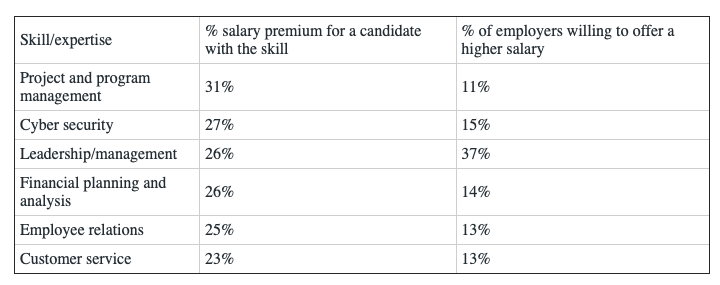February 14, 2024
The technology market is willing to pay a 31% salary premium to new hires in Australia, on the basis that it guarantees the recruitment of in-demand skills and expertise.
Resource starved employers are open to offering almost a third higher than market rates – albeit begrudgingly – but compensation hikes will be stringently calculated by technology certifications and industry experience.
While such a trend is expected to span across the entire local ecosystem during 2024 – from end-users to channel partners, distributors and vendors – it doesn’t mean necessarily remuneration rises across the board for job switching employees.
“These types of premiums and salary increase are not on offer to everyone,” qualified Nicole Gorton, Director at Robert Half. “Business leaders are looking for staff who can propel innovation and swiftly adapt to changing conditions.

“They are willing to pay a salary premium because of the pivotal role the candidate will play in steering companies towards growth as well as maintaining a distinct competitive edge. Employers see the salary premiums as an investment in amplifying efficiencies, reshaping outcomes and securing a prosperous future.”
According to Robert Half, project and program management skills can command the highest salary premium of almost a third (31%) more than market rate, ahead of cyber security (27%) and leadership positions (26%).

On the topic of expertise, more than half of employers state that a candidate must hold a certification to be considered for the role.
In Australia, the top five fields in which technology certifications are considered necessary are:
Employers are willing to bend on some criteria however, notably on the outsourcing side of the market – such as managed service providers (MSPs) and system integrators (SIs) – which is understandable given the desperate need for specialised resources to service end-user demand nationwide. Also, this can be used as a way to reduce salary premiums for an ecosystem already frustrated at paying over the top for “average talent”.
Within that context, Robert Half reported that:
“Employers recognise that the right skills not only enable employees to fulfil the basic requirements of the position but can invigorate a team and elevate projects,” Gorton added. “Therefore, employers are open to hiring candidates who hold the right skill set, even if their experience in the industry is relatively limited.”
Gorton was quick to stress the important of certifications however, insisting that they provide “tangible proof” that a candidate has expertise in key areas.
“This is particularly necessary for industries such as finance and technology, as they require a high degree of accuracy and regulatory compliance,” Gorton outlined.
“These credentials validate a candidate’s ability to navigate complex frameworks, as well as assure employers that they possess the in-depth knowledge and proficiency necessary for success in these demanding sectors.”
From a sector standpoint, the technology industry is expected to drive overall hiring intentions across Australia in 2024. That translates into 95% of employers intending to either “maintain or increase” permanent positions during the year ahead with a similar commitment (91%) to contract roles as well.
Consequently, the Australian job market “remains strong” despite an “unsteady” previous year, referencing a change in sentiment from employers compared to permanent (75%) and contract (63%) positions in 2023.

In short, Gorton said Australian businesses are looking to “bounce back” from a tumultuous 2023.
“While some businesses in more affected industries have stalled hiring, the majority are now looking to make strategic hires – by backfilling vacant roles or selectively interviewing highly skilled candidates aligned to strategic business objectives or to expand their teams,” Gorton added.
“While the country’s economy and hiring market will continue to shift, we’re coming off an incredibly elevated hiring period so jobseekers should continue to search with confidence but perhaps with less bargaining power than they would’ve had a couple of years ago.”
Inform your opinion with executive guidance, in-depth analysis and business commentary.